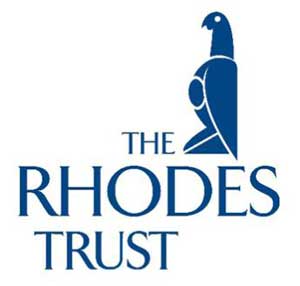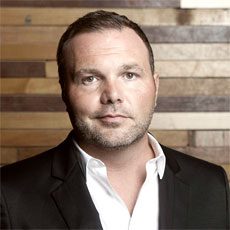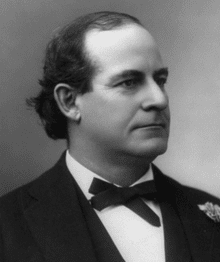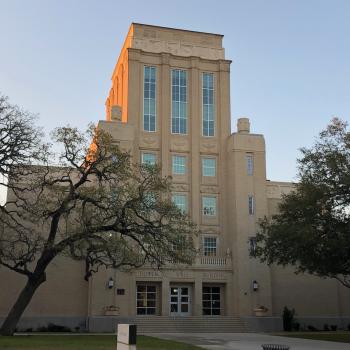Two men, born twenty-six years apart and moving within different circles, followed remarkably similar and typically American paths to the pinnacle of fame and leadership.
The first came from humble origins and endured a challenging childhood. His father died in an car wreck while his mother was pregnant, leaving her as a single mom. At the time of his birth, that situation meant social stigma and the stresses of providing for a family as a single parent. In order to do so, she left him with her parents–with whom she did now always see eye-to-eye–in order to obtain vocational training in a city over a day’s travel away. Soon, his mother remarried, but rather than bringing increased stability to the family, his stepfather brought further chaos as alcohol-fueled arguments and domestic abuse often defined his home life. Turmoil characterized his formative years.
 In spite of these challenges, during his high school years the young man excelled academically, served in student government, and became an accomplished musician. In college, he earned a prestigious Rhodes scholarship before returning to the United States to earn a law degree from an Ivy League school. Along the way, he emerged as a gifted communicator and a charismatic young star in a political party populated with older men.
In spite of these challenges, during his high school years the young man excelled academically, served in student government, and became an accomplished musician. In college, he earned a prestigious Rhodes scholarship before returning to the United States to earn a law degree from an Ivy League school. Along the way, he emerged as a gifted communicator and a charismatic young star in a political party populated with older men.

Decades later, the second young man followed a similar path. Born into a family where the men were alcoholics and wife-beaters, he grew up in a tough neighborhood full of all sorts of illicit activity. In high school, he excelled academically, served in student government, and became an accomplished athlete. His senior year, he was student body president and was voted “most likely to succeed.” He also worked in politics. In college, he underwent an evangelical conversion experience, going on to complete several degrees. Along the way, he emerged as a gifted communicator and a charismatic young star in an religious tradition populated with older men.
Both men excelled due to their charisma and ability to connect with “the people.” The first, Bill Clinton, emerged as one of the greatest political communicators in generations. Without a doubt, he surpassed all his opponents–both Democrat and Republican–in appealing and connecting to the populace. The second, Mark Driscoll, emerged as a gifted preacher who actually exposited the Scripture, connecting with with his multiple audiences in a way that his competitors–mostly those who talked about exposition rather than actually doing it–did not. He was willing to tackle difficult issues and proclaim grace, not mere moralism, with reckless abandon.
Both men connected with their constituents, becoming stars–Clinton among political Democrats and Independents, and Driscoll among many young-ish evangelicals. They were exciting, dynamic, and seemed poised to lead their people. Both attracted a wide swath of people willing to follow.
Unfortunately, personal foibles thwarted both men.

Sexual scandal derailed Bill Clinton’s second term in office as the President of the United States. Impeached, he narrowly escaped being removed from office for perjury in the hubbub that surrounded his philandering. Although the details of the case fit the textbook definition for sexual harassment and abuse of power, followers circled the wagons, defending the gifted, charismatic communicator who connected with the people. He was so damaged that Vice-President and Democratic Presidential nominee Al Gore did not feel he could utilize him much on the campaign trail, even though he was the party’s greatest communicator since Kennedy if not Bryan.

Reports of character issues recently derailed Driscoll’s leadership in the Acts 29 Network he started. Last week, amidst ongoing revelations regarding disturbing patterns of behavior, Driscoll resigned from his ministry at Mars Hill Church (Seattle), a church he planted in 1996. Until then, although persistent reports about the inner workings of Mars Hill Church fit the textbook definitions for spiritual abuse of power, bullying, and misogyny, followers circled the wagons, defending the gifted, charismatic communicator, who connected with the people. Likely, those who once hailed him as the prototype of future evangelical church leadership will distance themselves from him–at least for a time.
The similarities between Clinton and Driscoll’s trajectories to leadership should disturb us, for they reveal something troubling about the nature of “successful” church leadership in American evangelical circles. The common denominator is an ability to communicate effectively, connecting with the people through dynamic speaking and charismatic leadership. Such skills cover a multitude of sins in both the political and ecclesiastical realms. And, while we should expect it in the former, things ought be different in the latter. Sadly, in order to elevate such leaders, we often sell our birthright for a mess of pottage, downplaying other qualifications, ignoring warning signs, and eschewing intentional accountability as we embrace personality-driven leadership.
Although the Bible insists that a pastor must be “able to teach,” that requirement comes in the midst of whole list of qualification for pastors (1 Tim 3:1-7). Somehow, evangelicals have elevated it to the highest, or even singular, place. Further, if we are honest, by teaching, we mean a certain type of teaching: eloquent, dynamic, and charismatic. Somehow, I don’t think that is what “able to teach” means. After all, Paul wrote elsewhere that he did not “preach the gospel… with words of eloquent wisdom, lest the cross of Christ be emptied of its power (I Cor 1:17).” I wonder, have we emptied the cross of Christ of its power through elevating dynamic leaders in spite of their foibles? I think we have. God have mercy on us, and God have mercy on Mark Driscoll. May he find peace and rest in the grace of Christ and let us ponder our own role in this sad debacle.
Sources:
“Bill Clinton: Life Before the Presidency,” American President: A Reference Resource, The Miller Center (Charlottesville, VA).
Mark and Grace Driscoll, Real Sex: The Truth About Sex, Friendship, and Life Together (Thomas Nelson, 2012).
















